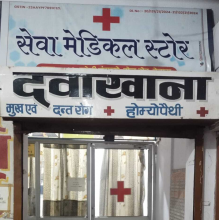The Pasteur Pipette, also known as a dropper or teat pipette, is an essential laboratory tool designed to transfer small quantities of liquids efficiently. Ideal for dispensing tiny amounts of reagents or solutions, these droppers come in both glass and plastic varieties. The glass Pasteur pipette has a tapered end, perfect for precise applications, while the plastic option offers convenience with its one-piece design. Although not intended for measuring specific volumes, these pipettes are indispensable in laboratories for transferring fluids without contamination. With capacities of 1 ml, 3 ml, and 5 ml, they cater to various laboratory needs. Our Pasteur pipettes are available both sterile and non-sterile, making them suitable for various laboratory applications. Available in bulk or individually wrapped, they provide flexibility and ease of use, ensuring that you have the right quantity for your techniques. For a seamless experience, simply hold the pipette at a 30 to 45-degree angle for optimal dispensing. Durable, affordable, and versatile, the Pasteur pipette is a must-have for any laboratory supply.
Key Features
| Features | Description |
|---|---|
| Material | Glass and Plastic |
| Capacity Options | 1 ml, 3 ml, 5 ml |
| Sterility | Available in sterile and non-sterile options |
| Design | Tapered glass tip with bulb for easy fluid transfer |
| Usage | Not for precision measurement, ideal for adding drops of reagents |
| Packaging | Sterile: 100 pcs per polybag; Non-Sterile: 250 pcs per polybag |
| Attributes | Description |
|---|---|
| Type | Pasteur Pipette |
| Function | Transferring small volumes of liquid |
| Bulb Type | Rubber or plastic |
| Shape | Tapered with a bulb at the top |
| Durability | Reusable if glass is intact; disposable plastic |
| Cleaning Method | Wash in-between uses for better accuracy |
Key Words
*Disclaimer: The above description has been AI-generated and has not been audited or verified for accuracy. It is recommended to verify product details independently before making any purchasing decisions.
Country Of Origin: India
Pasteur pipettes or droppers are used to transfer small quantities of liquids. They are usually made of glass tubes tapered to a narrow point, and fitted with a rubber bulb
Plastic Pasteur pipettes (or transfer pipettes) have their stems and bulbs in the form of a single piece made of plastic.
It is not recommended to use Pasteur pipettes for work involving accuracy since Pasteur pipettes are not designed to measure specific volume; however, it can be used to add drops of reagents.
To increase accuracy, the pipette is to be rinsed with the reagent.
To dispense the solution, hold the tip against the side of the target container at a 30 to 45 degrees angle and gently squeeze the bulb.
Sterile or non-sterile
Disposable
Sterile – individually wrapped, 100 pcs per polybag
Non-Sterile – bulk, 250 pcs per polybag
Capacity
1 ml
3ml
5ml
For more details plz contact:- *****
Pasteur pipettes are also called teat pipettes, droppers, eye droppers and chemical droppers. The Pasteur pipettes are commonly used in laboratories to dispense small amounts of liquid medicines. They are tapered to a narrow opening point at the lower end and fitted with a plastic or rubber bulb at the upper end. The liquid is transferred with the help of a rubber bulb which is fitted on the top of the pipette.
Plastic Pasteur pipettes (or transfer pipettes) have their stems and bulbs in the form of a single piece made of plastic.
It is not recommended to use Pasteur pipettes for work involving accuracy since Pasteur pipettes are not designed to measure specific volume; however, it can be used to add drops of reagents.
To increase accuracy, the pipette is to be rinsed with the reagent.
Generally, Pasteur pipettes are cheap enough to be disposable, however, so long as the glass point is not chipped, the Pasteur pipette may be washed and reused indefinitely.
To use the Pasteur pipette, squeeze the bulb to expel air out of the pipette and submerge the tip of the pipette to the solution. Gently relax the bulb to draw the solution up making sure that the solution does go into the bulb, contaminating it.




Dewas, India
Service Center, Retailer, Exporter, Wholesaler
GST- 23AAYPF7091C1ZL
FIEO Registered